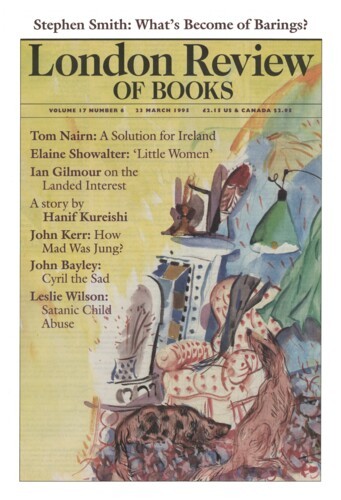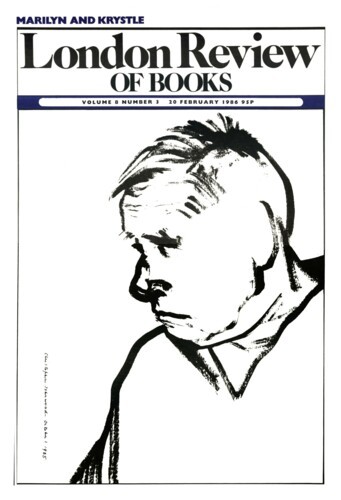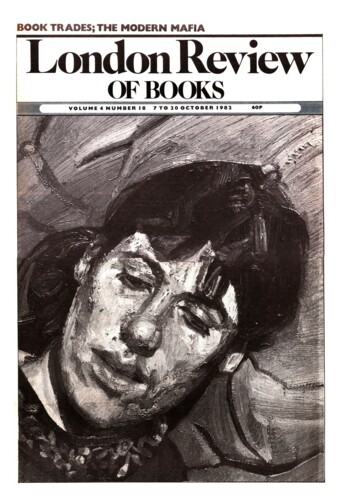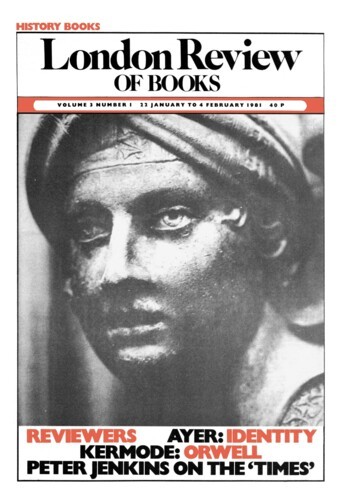Bernard Crick
Bernard Crick is Professor of Politics at Birkbeck College, London. At the beginning of the summer he gave the first George Orwell Memorial Lecture, sponsored by Penguin Books, at the University of London’s Extra-Mural Department. ‘Orwell and Biography’ is a shortened version of this lecture.
Ideologues
20 February 1986
Orwell and Biography
Bernard Crick, 7 October 1982
The word ‘biography’ can create as many different expectations as the word ‘Orwell’. It can mean a memorial or a panegyric, it can mean a hatchet job, it can simply mean a good read (Wyndham Lewis once said that good biographies are like novels); or it can mean something scholarly, academic, definitive: a dull attempt to tell the truth, the whole truth and nothing but the truth – as far as that is possible. I have no wish to say that popular biography cannot be truthful. I merely point to the paradox that the popular biographer himself does not know if he is being truthful, unless somebody else has, not sketched a character, but done the hard graft of long and patient factual investigation into the circumstances and events of a life. Strictly speaking, a truthful popular biography can only be a simplified and shortened version of an existing scholarly biography, just as all school history books are taken from academic monographs. I am proud that my life of Orwell is already being recycled and usefully plagiarised in this way, especially by people who seem to have a greater intuitive grasp of his ‘essential character’ than I have, though they are civil enough to praise my capacity for hard work.
Orwell’s Reputation
22 January 1981
Labour’s Programme
22 January 1981
Pieces about Bernard Crick in the LRB
Pow-Wow
Mary Beard, 26 October 1989
If you want to see the cutting edge of Thatcherism, go to Basingstoke. There, as we learn in Paul Hirst’s After Thatcher, the local council (careful, no doubt, with its ratepayers’...
Plain English
Denis Donoghue, 20 December 1984
Orwell took little care of his manuscripts. He didn’t anticipate that collectors of such things would pay real money for them, and that universities would think it a privilege to turn a...
The Essential Orwell
Frank Kermode, 22 January 1981
Professor Crick’s subject is important and his research has evidently been diligent. We now know a lot more about Orwell than we did, and the increment of knowledge is not always trivial....
Read anywhere with the London Review of Books app, available now from the App Store for Apple devices, Google Play for Android devices and Amazon for your Kindle Fire.
Sign up to our newsletter
For highlights from the latest issue, our archive and the blog, as well as news, events and exclusive promotions.




